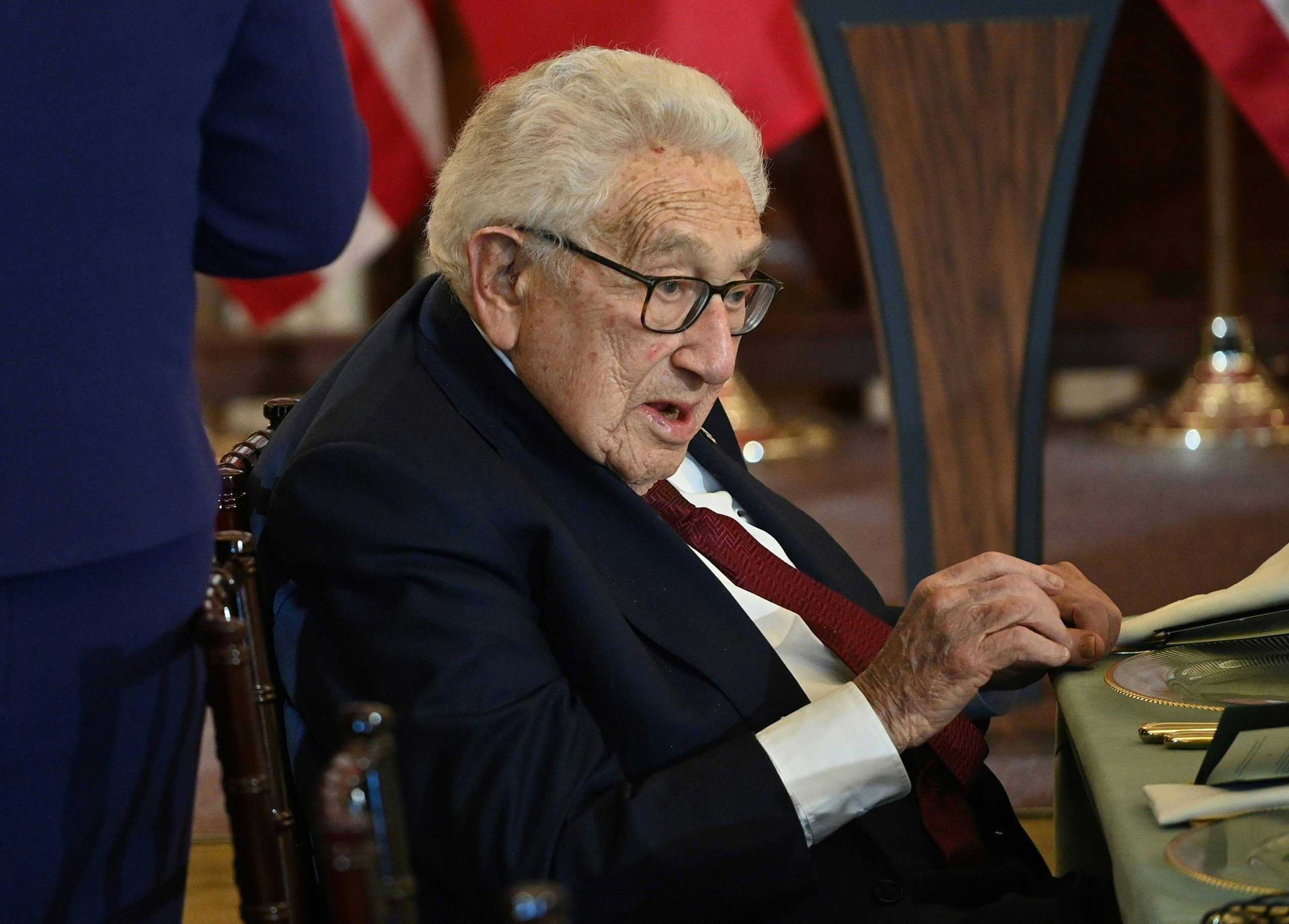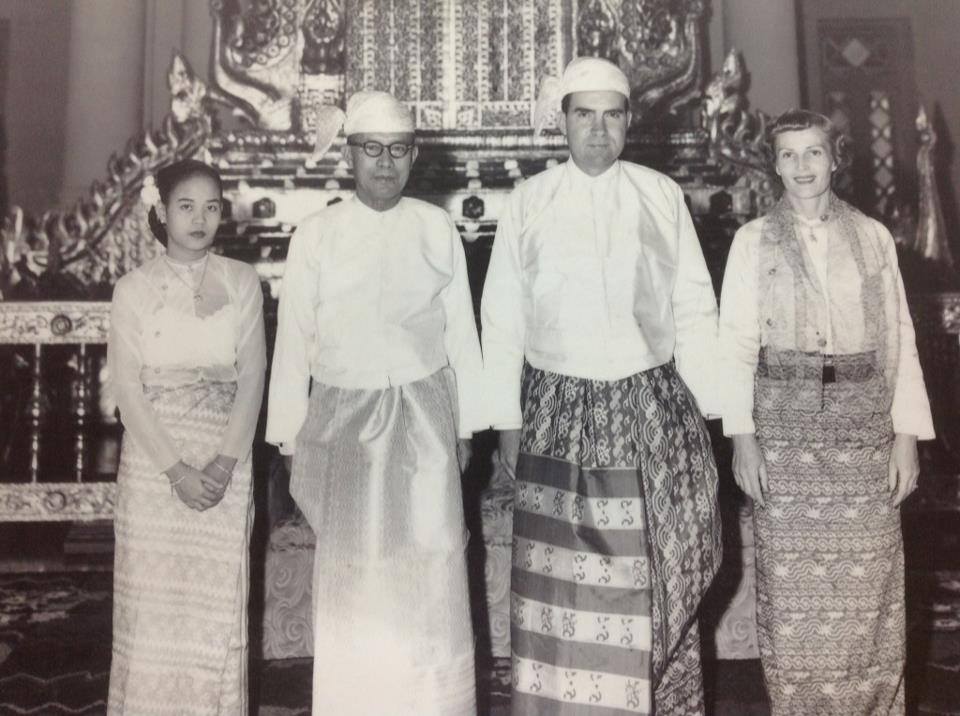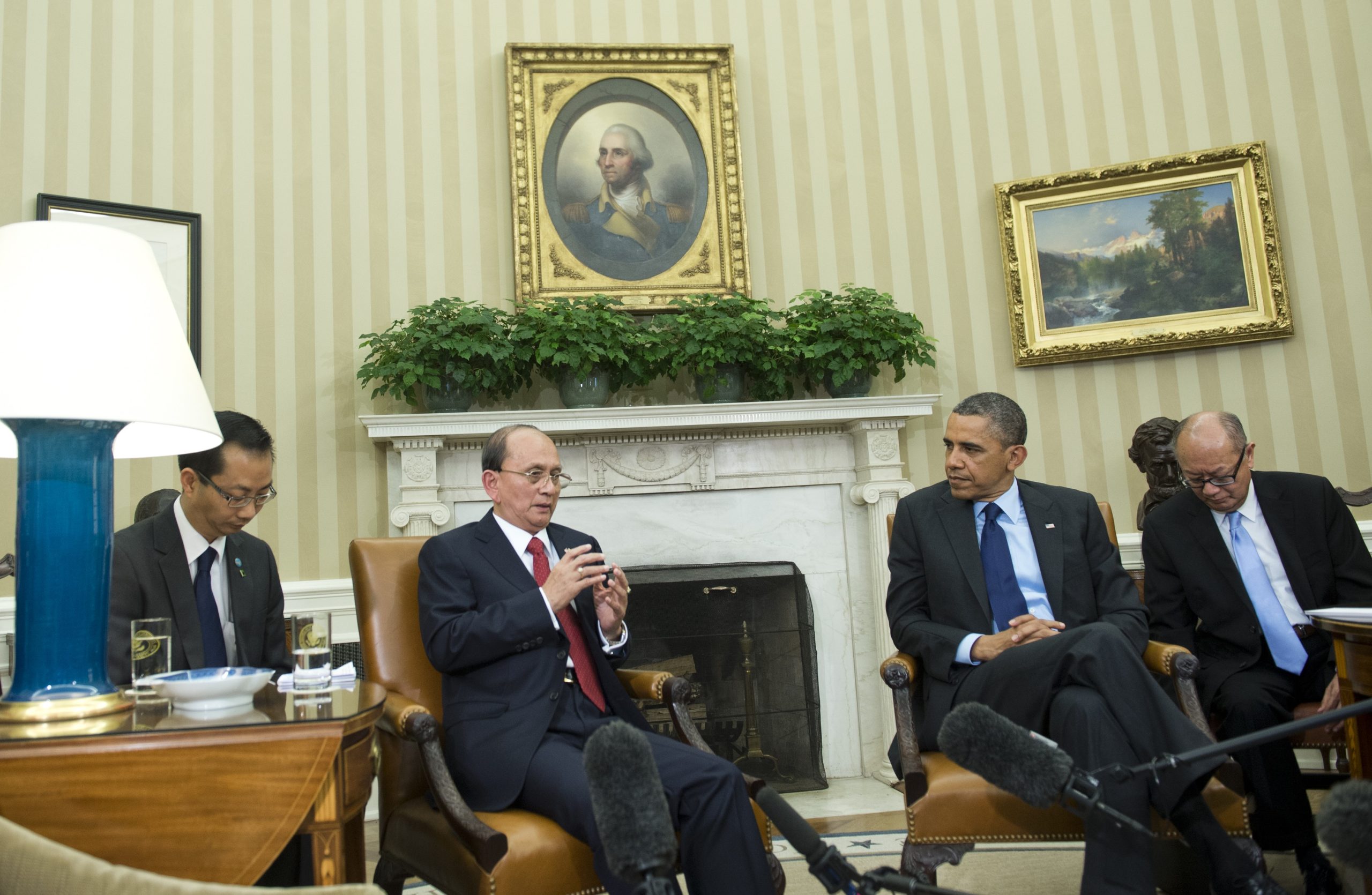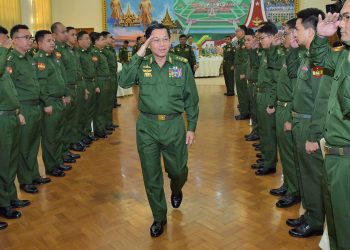The former United States Secretary of State Henry Kissinger has turned 100, an event heralded by many and denounced by more. This centenarian war criminal – who made a major contribution to global disorder and impunity for state-directed mass murder in the late 20th Century – is being celebrated with a combination of cynical reverence and ineffectual opprobrium.
The German-born Kissinger was an elite, educated foreign policy specialist who served as President Richard Nixon’s National Security advisor from early 1969, then as Secretary of State from September 1973 to January 1977, serving under Gerald Ford after Nixon’s impeachment. Kissinger was a pivotal figure in American Cold War diplomacy: the conduct of the war in Vietnam, Laos and Cambodia, rapprochement with China, détente with the Soviet Union, and the succor of military dictatorships and coups in Chile, Argentina, all through Africa, messy shuttle diplomacy in the Middle East, covering up a genocide in East Pakistan [soon to be Bangladesh], and he greenlit Indonesia’s invasion of East Timor.
Perhaps the most trenchant denunciation of Kissinger’s multitude of crimes is found in Christopher Hitchens The Trial of Henry Kissinger [a metaphorical trial]. The Guardian newspaper in a series of articles over recent days has been on a campaign of denouncing Kissinger’s past crimes and critiquing the fetid culture of veneration he continues to enjoy in American foreign policy circles. Former Secretary of Defense Robert McNamara, on the same war criminal level as his near contemporary, expressed some reflection and contrition in the 2003 documentary The Fog of War, but Kissinger has enjoyed complete immunity from justice and any troubled conscience.

Kissinger mercifully spared Myanmar, then Burma, during his near decade of destruction around the world: when you’re busy decimating Indochina what concern do you have with a near neighbor in which an anti-American despot is self-destructing his own society and waging an anti-communist civil war? General Ne Win’s 1962 coup had dragged Burma out of regional affairs, as the military were too busy repressing their own citizens, expelling South Asian’s, nationalizing industry and generally boycotting the Cold War. Impoverishing a country renders it a less palatable subject for a strategist like Kissinger. He was fully aware of Mobil Oil’s financial support for U Nu’s exiled anti-Ne Win People’s Democratic Party, sublimely described in Wendy Law-Yone’s Golden Parasol. but US$2 million is a relatively small-scale operation. Kissinger is only mentioned in passing in Kenton Clymer’s study of Myanmar-US bilateral relations, A Delicate Relationship.
His closest impact probably came at the start of a major US$80 million counter-narcotics assistance package to Ne Win’s regime, including helicopters and toxic 2,4-D defoliant from the early 1970’s to 1988, which the US General Accounting Office reported was a failure. A September 23, 1971 memo from Kissinger to President Nixon on drug control efforts in Burma was perfunctory and parsimonious: it’s doubtful the self-promoting advisor would trouble himself with such a marginal state at the time. Kissinger never visited Myanmar.
Kissinger’s boss, former President Richard Nixon visited the then Burma twice: in 1953 as vice-president when U Nu was prime minister, with Nixon facing down some communist protestors, challenging them with questions, and then for two days in September 1985, when he met with Ne Win and visited the reclining Buddha in Bago and the Shwedagon Pagoda in Yangon.

The closest Kissinger came to visiting the country or taking much of an interest that we know of was in 2012. Such was the fever pitch of US policy evolution towards Myanmar’s ‘transition’ that Henry Kissinger the old showman-statesman had to get in on the action. This email, dated 21 September, 2012, from then Secretary of State Hillary Clinton’s email records released by Wikileaks in March 2016, was from State Department official Patrick Murphy to colleagues leading the Myanmar engagement push.
“Chatted with Dr. K for about a half hour tonight at the Atlantic Council. He’s fascinated by Burma, but admitted he wished he knew more and regretted that had never encountered any Burmese – other than U Thant back in the day and ASSK [Daw Aung San Suu Kyi] and her delegation tonight. He said he is a big fan of S [Secretary of State Hilary Clinton], and especially her bold Burma policy.” That’s quite telling, that Kissinger hadn’t encountered any Burmese: I think that describes the vast majority of foreigners who flocked to Myanmar about this time.
Kissinger, like so many self-promoting international blowhards in 2012, urgently wanted to visit and be part of something momentous. The email ends; “He’s looking forward to seeing Thein Sein next week [asked if I would be there; I explained ASSK travels – but said I thought Derek might be there]. He’s interested in going to Burma in October [from Singapore] and might contact S with his interest. I know October is packed with visitors, but I encouraged his general interest – noting that his China experience would in particular resonate with the reformist GOB [government of Burma/Myanmar]. He asked if it could be done in a day, but agreed with me that he’d really need to do NPT [Naypyitaw] and not just Rangoon [Yangon].”
At the meeting at The Mark Hotel on 26 September, 2012, New York, President U Thein Sein told Kissinger that he “is a very respected person in terms of his age, experience and knowledge [and] sees the latter’s active participation in international affairs. Those undertakings would remain as milestones throughout the history.”
Kissinger replied [according to state media paraphrasing] that “(h)e was very much interested in Myanmar and he had great respect for Myanmar history. He was glad to see US-Myanmar bilateral relations becoming healthy again and happy to see dialogue between the two countries. He was sure to say that Myanmar would play a pivotal role in the future of Southeast Asian countries. The reason why he had great interest in Myanmar was she was going forward on her own decision. He said that a respected state leader was the one who had the ability to take a bold move to introduce a reform process in his own country. It was very important to implement a peacemaking process with armed groups. He understood there would be a lot of difficulties in Myanmar reform process. It was required for everyone to join hands in this process.”
In Thant Myint-U’s 2019 book, The Hidden History of Burma, he cascades praise on presidential advisor and former navy admiral U Soe Thane and the arrangements for U Thein Sein’s trips to the United States, where Thant also helped with writing speeches and talking points, and that “Henry Kissinger dropped by to “see with my own eyes the generals who were giving up power.’” It’s rather unfortunate for Thant’s version of history that the architect of reform, U Soe Thane, has endorsed the military regime’s 2021 coup and that other members of the delegation including U Khin Yi and U Wunna Maung Lwin all joined the State Administration Council. Kissinger would have been warmed by the company, recognizing a gaggle of dishonest thugs as hail fellows well met.
U Soe Thane’s recollections in his hagiographic but oddly-revealing book, Myanmar’s Transition & U Thein Sein: An Insider’s Account, claimed “(h)e was over 90 years old. I got curious and asked him the reason for his visit, and he replied that he just wanted to have a look at the person who had initiated and successfully launched the transformation into a democratic system in a country like Myanmar. I could not help feeling really proud of our President.” Pass the sick bag.
Kissinger’s fleeting interest didn’t make much of an impact. He is nowhere mentioned in regard to Myanmar in Hilary Clinton’s book of her time as Secretary of State, Hard Choices, although her embrace of him during her 2016 presidential run was sickening and the possibility of him advising on Myanmar policy if she became president bears no thinking about. Nor is Kissinger mentioned in Erin Murphy’s excellent insider account of US engagement, Burmese Haze.
But Kurt Campbell, often credited with being a leading engagement strategist, at least runs his version in his 2016 book The Pivot. Campbell left the State Department in 2013 after first registering a company called Asia Group in Delaware and engaging in some questionable lobbying efforts in the region, including a lucrative airport extension contract in Myanmar. That Campbell is now serving on President Joe Biden’s National Security Council as Indo-Pacific Coordinator explains some of the sluggish post-coup policy from Washington. Campbell is reflective of a Kissinger stain on American diplomacy. Read the account in New York Times reporter Mark Landler’s Alter Egos, of Campbell pilfering Air Force One souvenirs [cocktail napkins, glasses and a flashlight] then running away from Secret Service agents on the tarmac of Mingaladon Airport in 2012 to gauge the character of the man.
This is not to dismiss the US-led approach to engagement with Myanmar, it was by far the most calibrated, measured, careful and principled in a decade of what should be remembered as grotesque scramble for Myanmar. Clinton and Obama’s visit were premature in retrospect, as was the dismantling of sanctions, but the rest of the American approach was the appropriate blend, guided by two of the most effective and distinguished ambassadors to serve in Myanmar in Derek Mitchell and Scot Marciel.

Washington was not just contending with a faster moving ‘reformist’ phenomenon than planned, but the craven competition from a business-obsessed European Union, a dishonest Norway willing to retard the peace process to secure telecoms contracts, the mining-obsessed Australia, the blinded-by-Suu Kyi partisan British, and an always value-shy Japan. Other war criminal statesmen like former British Prime Minister Tony Blair advised Daw Aung San Suu Kyi: Kissinger Associates, Inc, his firm of highly-paid thugs, were otherwise engaged.
The brief encounter with Kissinger must have made an impression on U Thein Sein. He told the BBC in an interview in 2015 that constitutional rules banning people [Daw Aung San Suu Kyi] from the presidency were not unique to Myanmar, “before mentioning Henry Kissinger as someone who would have made a good American president but was blocked by the rules [because he was born in Germany].” Many observers felt that Kissinger exercised undue influence over Nixon, who on his own merits was already the most corrupt and mendacious president in history. As the baleful joke goes, if Kissinger died it would make Nixon president.
There are three main lessons to take from Kissinger’s tenuous connection to Myanmar. First, his legacy of statecraft is a litany of failure, from Southeast Asia, to the Middle East to Africa. His approach to diplomacy should be thoroughly discredited by now, a blend of historical obsession, narcissism, and utter disdain for human life, especially of the peasant kind. Why is he still worshipped by prominent Americans?
He told the brilliant Italian journalist Oriana Fallaci in a 1972 interview, “(i)t’s not intelligence that’s important in a head of state. The quality that counts in a head of state is strength. Courage, shrewdness, and strength.” He likened himself and his historically-infused statecraft to a lone cowboy: “Americans like that immensely. Americans like the cowboy who leads the wagon train by riding ahead alone on his horse, the cowboy who rides all alone into the town, the village, with his horse and nothing else…” Kissinger claimed Fallaci had distorted his words in that notorious interview. She retorted that she was happy to release the audio tapes in their entirety to establish the veracity of the transcripts. He dropped the matter. It’s a small insight into his dishonest character, and pales to what he inflicted on the peoples of Indochina, East Timor, the Middle East and most of Africa too [and on the people of America for that matter] but it’s still an autocratic character trait to plead such a petty defense.
But Kissinger’s legacy still resonates within the US Foreign Service and foreign policy elites. A short video of Kissinger’s arrival at the meeting shows former chargé d’affaires to Myanmar, Priscilla Clapp, gushing over the former secretary. Current US Agency for International Development administrator Samantha Power once criticized Kissinger over Cambodia and Indonesia, and the betrayal of the Kurds in the 1970s [the Americans are multigenerational betrayers of the Kurds, it’s done with almost systematic once-a-decade certainty], in her book on genocide, A Problem from Hell, and others. As a member of President Obama’s National Security Agency staff she had been part of negotiations ahead of his historic November 2012 visit to Myanmar, the first ever by a sitting US president, where she had [by her account] wrested significant concessions out of the military [who soon after reneged on them almost completely].
By 2014 as President Obama’s ambassador to the United Nations she admitted to Evan Osnos in the New Yorker that she had gravitated from ideals to the “get shit done people.” By 2016 she accepted the Henry A. Kissinger Prize, from the war criminal himself, in “pursuit of a more stable, peaceful and humane world.” That’s quite the miseducation of an idealist. ‘Get shit done’ should be seen then as less a motivational diplomacy mantra than a double-entendre.
A second point relates to the now irredeemable Nobel Peace Prize that Kissinger and Daw Aung San Suu Kyi share. Kissinger won in 1973 for negotiating the Paris Peace Accords to end the Vietnam War, alongside his counterpart from North Vietnam. Le Duc Tho had the good grace to refuse to accept the prize, but Kissinger traipsed irony-free to the acceptance ceremony. The songwriter Tom Leher said at the time, “(p)olitical satire became obsolete when Henry Kissinger was awarded the Nobel peace prize.” Declassified Nobel Committee documents recently released reveal that the committee did not believe the accords would hold. They didn’t. Kissinger tried to return the prize in May 1975 after the fall of Saigon. The Nobel committee never replied.
Suu Kyi may have cast new gloss on the prize when she received it in 1991, but its disrepute was terminal by 2017 and her denial of the abuses against the Rohingya community. But the comparisons between Suu Kyi and Kissinger are fatuous: Kissinger created global destruction like few other American elites in the past century, all overlaid by a cannon of erudite diplomatic thought that serves to exculpate his crimes in the minds of global elites. Daw Aung San Suu Kyi was a pedestrian politician whose charismatic authority had spluttered, and who had the poor personality to contextualize the mass atrocities of the Myanmar military in an international court. No comparison there. The real loser here is the Nobel Peace Prize itself, which is now as artless as the Eurovision Song Contest.
And finally, Kissinger serves as living proof that elite officials can get away with colossal crimes. He is a squalid case study in impunity, and has been for 50 years. Not just for past crimes around the world, but continued cynical advice to governments and corporations that props up dictators and justifies atrocity for money. That is the message the United States is sending to Min Aung Hlaing and the Myanmar military by venerating this 100-year old fugitive from real justice. Imagine if he had shown any genuine interest in Myanmar?
David Scott Mathieson is an independent analyst working on conflict, humanitarian and human rights issues on Myanmar
















